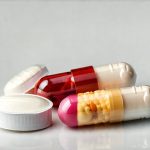Urinary tract infections (UTIs) are incredibly common, impacting millions worldwide annually—particularly affecting women. Often perceived as simply uncomfortable bladder issues, UTIs can be far more complex than many realize. While most people focus on the immediate symptoms like burning sensations during urination and frequent urges to go, a growing body of research suggests that these infections may have ripple effects throughout the body, potentially influencing seemingly unrelated areas like nutrient absorption and the delicate balance of our gut microbiome. Understanding this interconnectedness is crucial for holistic health management, moving beyond merely treating the infection itself and towards supporting overall wellbeing during and after illness.
The conventional understanding of UTIs centers on bacterial invasion and inflammation within the urinary tract. However, the immune response triggered by a UTI isn’t isolated to the bladder or kidneys. It’s a systemic event that engages various bodily systems. This widespread immune activation can indirectly influence digestive processes and the gut microbiome – the vast community of microorganisms residing in our intestines. These microbes play a pivotal role not only in digestion but also in immunity, vitamin synthesis, and even mental health. Disruptions to this ecosystem, caused by factors like antibiotic use or inflammation, can have far-reaching consequences. This article explores how UTIs and their treatment might impact both the absorption of vital nutrients and the complex world within our gut.
The Interplay Between UTIs & Nutrient Absorption
The link between UTIs and nutrient absorption isn’t straightforward but stems primarily from two key areas: inflammation and antibiotic use. When a UTI develops, the body initiates an inflammatory response to combat the infection. Chronic or even repeated acute inflammation can interfere with the normal functioning of the digestive system. Inflammation affects intestinal permeability, sometimes referred to as “leaky gut,” which is when the tight junctions between cells in the intestinal lining become compromised. This allows undigested food particles and toxins to enter the bloodstream, potentially triggering further immune responses and hindering nutrient absorption.
Antibiotics, while essential for treating bacterial UTIs, aren’t selective; they kill both harmful bacteria and beneficial gut flora. This disruption of the microbiome can significantly impair the digestion and absorption of certain nutrients. For instance, some gut bacteria are vital in breaking down complex carbohydrates or synthesizing vitamins like K and B vitamins. Loss of these microbes leads to reduced nutrient availability. Furthermore, antibiotic-associated diarrhea is a common side effect, further exacerbating malabsorption issues as food moves through the digestive tract too quickly for adequate absorption. The longer the course of antibiotics, the more pronounced this disruption tends to be.
It’s important to note that nutrient deficiencies aren’t always immediately apparent. They can develop gradually over time and manifest as subtle symptoms like fatigue, weakened immunity, or impaired cognitive function. Individuals experiencing frequent UTIs or those requiring long-term antibiotic treatment should therefore pay close attention to their nutritional status and consider consulting with a healthcare professional about appropriate support strategies.
Vitamin D & Immune Function in UTI Susceptibility
Vitamin D plays an incredibly important role in immune regulation, and deficiencies have been linked to increased susceptibility to infections – including UTIs. A healthy level of vitamin D enhances the body’s ability to fight off pathogens, reducing the risk of infection in the first place. However, inflammation associated with a UTI can further deplete Vitamin D levels as the body utilizes it during the immune response. This creates a potential vicious cycle where deficiency increases susceptibility and infection exacerbates the deficiency.
- Supplementing with vitamin D (under medical guidance) may help bolster the immune system and reduce the frequency of UTIs in individuals who are deficient.
- Dietary sources of Vitamin D, such as fatty fish, egg yolks, and fortified foods, should be incorporated into a balanced diet.
- Sunlight exposure is also crucial for Vitamin D synthesis, but factors like latitude, season, and skin pigmentation can affect its effectiveness.
Maintaining adequate vitamin D levels isn’t just about preventing UTIs; it’s about supporting overall immune health and resilience. A robust immune system is the best defense against any infection.
The Role of Magnesium in Bladder Health & Absorption
Magnesium is often overlooked, but it plays a vital role in numerous bodily functions, including muscle relaxation, nerve transmission, and – importantly – bladder function. Low magnesium levels can contribute to bladder hyperactivity and increased urgency, potentially worsening UTI symptoms or even increasing the risk of recurrent infections. Moreover, UTIs themselves can sometimes lead to magnesium depletion due to inflammation and fluid loss.
Magnesium absorption can also be affected by several factors, including dietary intake, gut health, and certain medications. Antibiotics, again, can disrupt the gut microbiome, which impacts magnesium absorption. Furthermore, conditions like diarrhea (often a side effect of UTI treatment) reduce the amount of time nutrients have to be absorbed in the intestines.
- Increase dietary intake of magnesium-rich foods such as leafy green vegetables, nuts, seeds, and whole grains.
- Consider magnesium supplementation if deficiency is suspected, but consult with a healthcare professional to determine the appropriate form and dosage.
- Prioritize gut health by incorporating probiotic-rich foods or supplements (after antibiotic treatment) to support optimal nutrient absorption.
Gut Microbiome Disruption & Long-Term Consequences
The gut microbiome isn’t just about digestion; it’s deeply intertwined with immune function, mental health, and even hormone regulation. Antibiotic use during UTI treatment can severely disrupt this delicate ecosystem, leading to a reduction in beneficial bacteria and an overgrowth of potentially harmful ones. This imbalance – known as dysbiosis – can have long-term consequences beyond the immediate infection.
The loss of beneficial gut bacteria can weaken the immune system, making individuals more susceptible to future infections. It can also lead to increased intestinal permeability (“leaky gut”), allowing toxins and undigested food particles to enter the bloodstream and trigger inflammation. Furthermore, dysbiosis has been linked to mood disorders, anxiety, and even chronic fatigue.
- Probiotic supplementation after antibiotic treatment is often recommended to help restore the balance of the gut microbiome. However, it’s important to choose a high-quality probiotic with strains that have been clinically proven to be effective.
- Fermented foods like yogurt, kefir, sauerkraut, and kimchi are natural sources of probiotics and can contribute to a healthy gut microbiome.
- A diet rich in fiber supports the growth of beneficial gut bacteria, helping to restore balance and improve overall gut health.
It’s crucial to remember that this information is intended for educational purposes only and should not be considered medical advice. Always consult with a healthcare professional before making any changes to your diet or treatment plan. They can provide personalized recommendations based on your individual needs and circumstances.





















